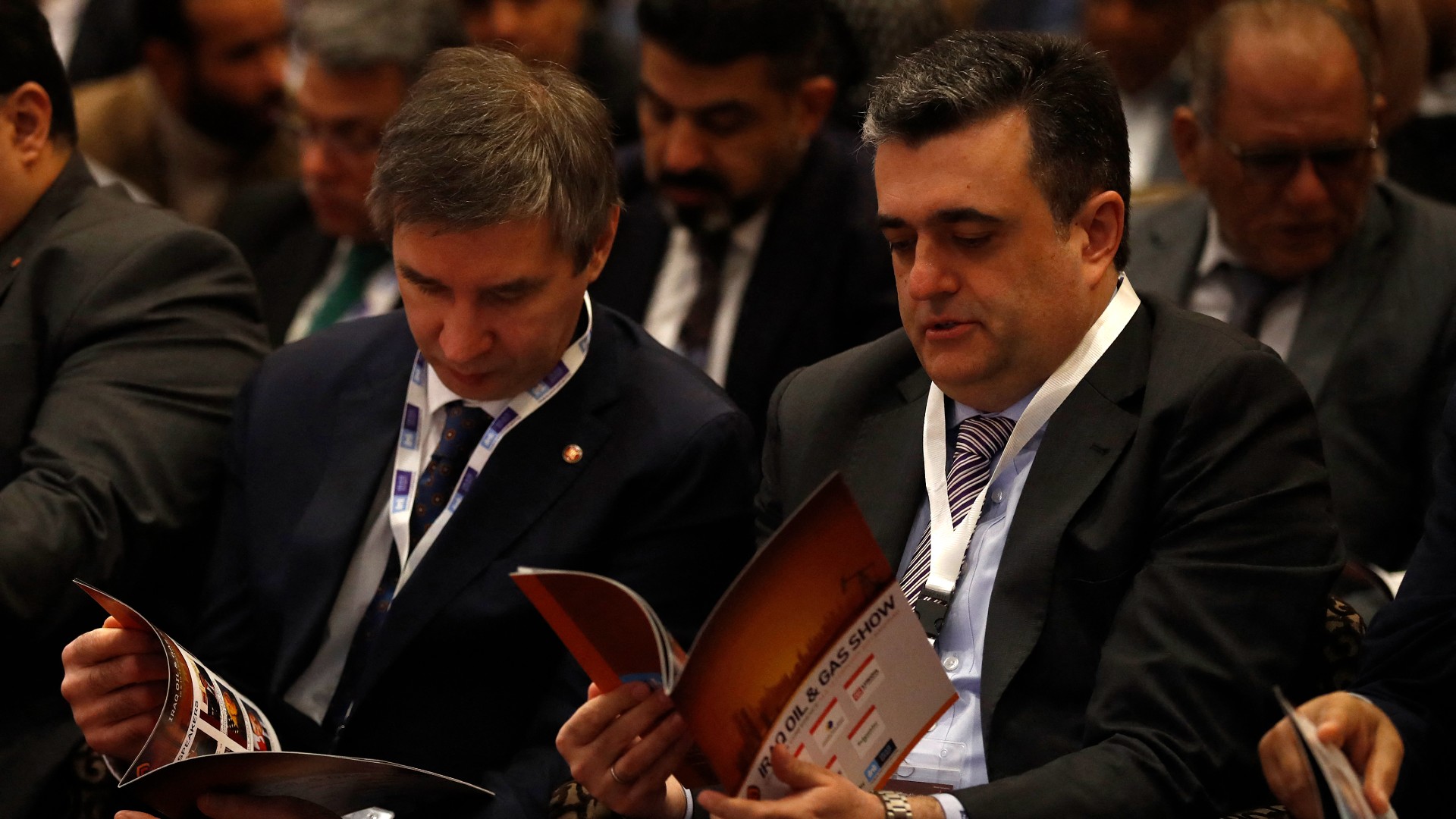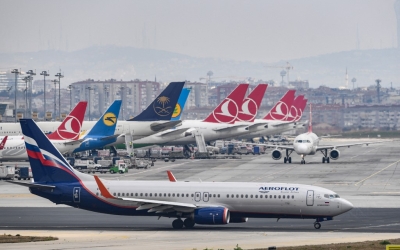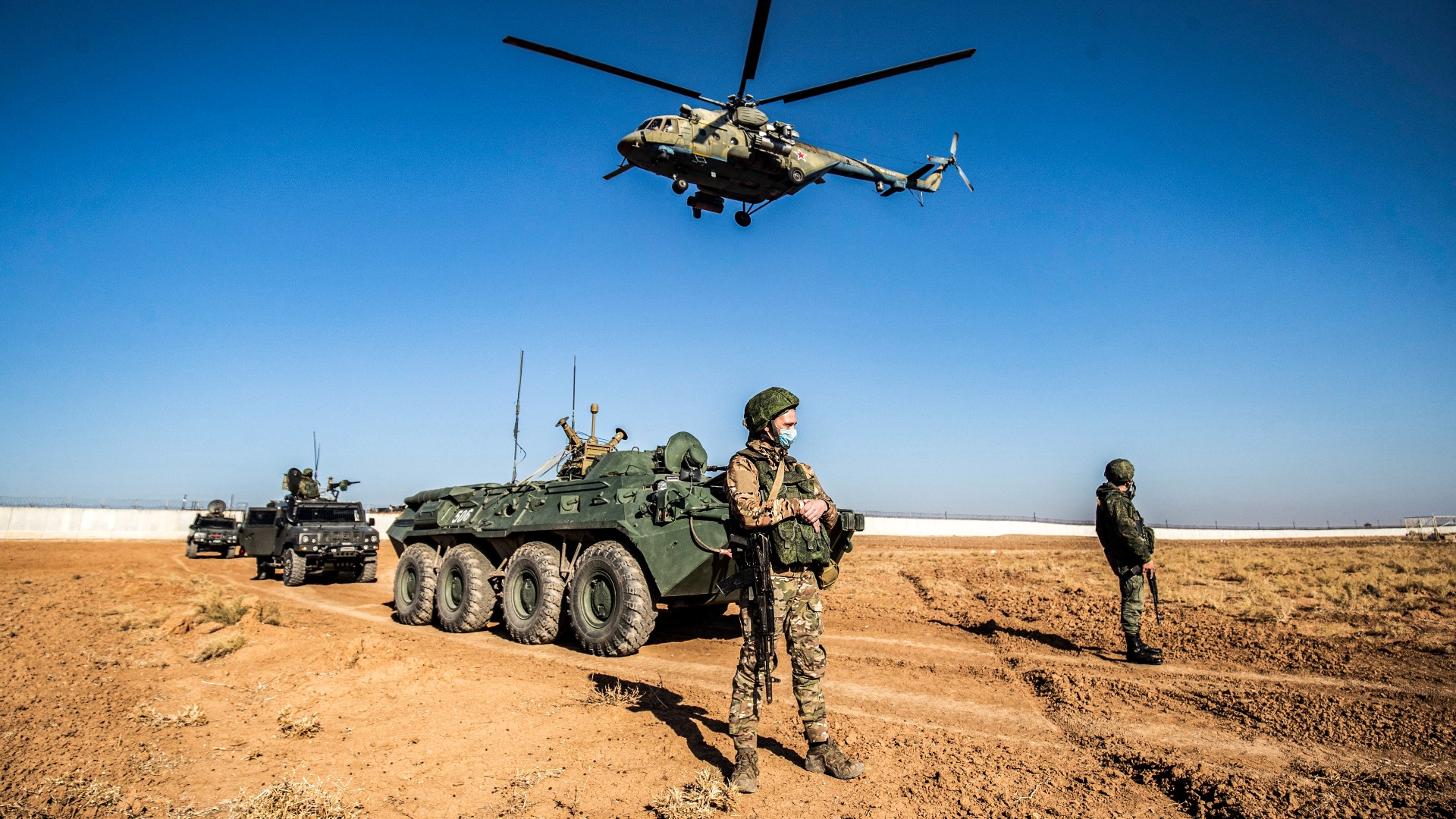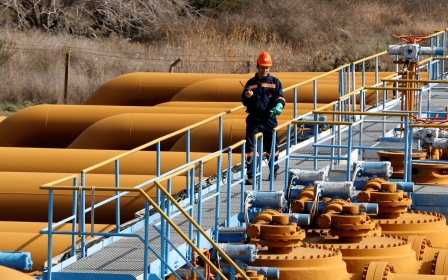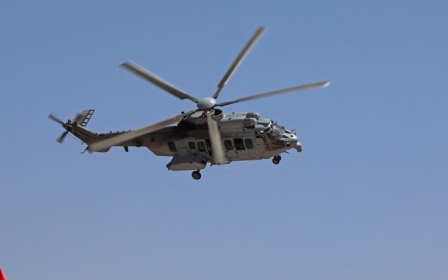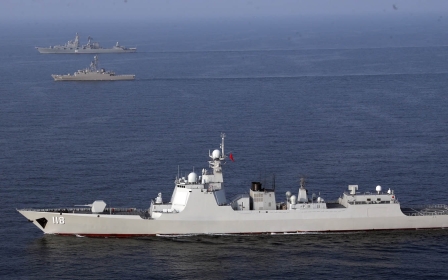Russia lobbies Iraq to open airspace for military flights to Syria
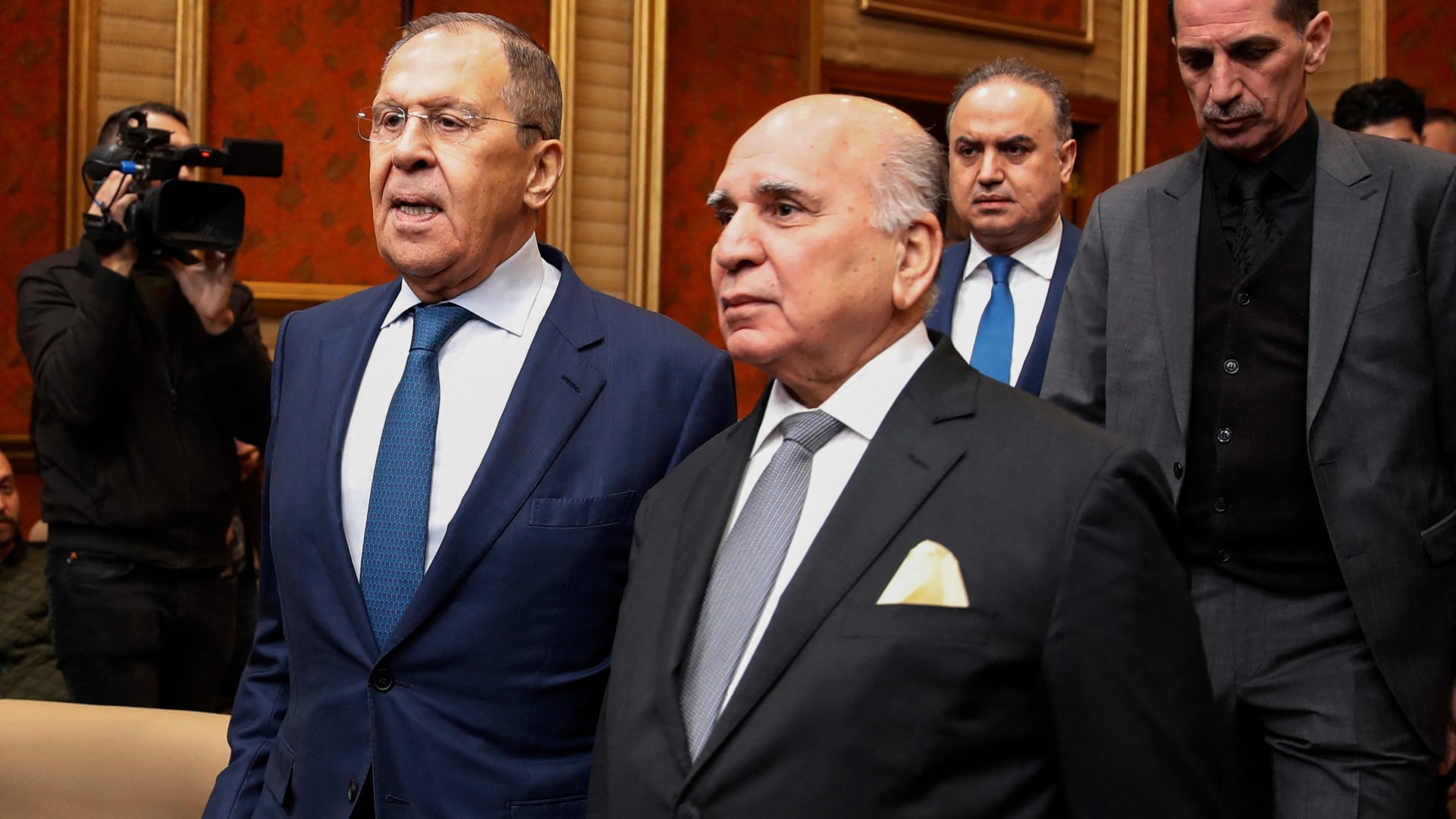
Russia has asked Iraq’s government to reopen its airspace to the Russian military, which wants to transport troops and equipment to its bases in eastern Syria, a diplomat and Iraqi officials told Middle East Eye.
The proposed Russian-Syrian air corridor passing through Iraqi airspace would be the shortest and least costly route for Moscow, after Turkey closed its airspace to Russian civil and military aviation in April last year, the officials said.
Russia has stationed troops in Syria since intervening in its conflict on behalf of President Bashar al-Assad in 2015. The troops are both important to maintain Assad’s position and bolster Russia’s regional ambitions and influence, so maintaining their presence is a priority for both Moscow and Damascus.
At first, Russia faced few issues in using Iraqi airspace to conduct flights to and from Syria, but restrictions were imposed by the government of former Iraqi Prime Minister Mustafa al-Kadhimi "under the pretext that [Russian flights] were threatening the US military bases in Iraq and Syria", the diplomat told MEE.
The diplomat spoke on condition he and his country were not disclosed.
New MEE newsletter: Jerusalem Dispatch
Sign up to get the latest insights and analysis on Israel-Palestine, alongside Turkey Unpacked and other MEE newsletters
However, since Kadhimi was replaced by Muhammad Shia al-Sudani in October, these restrictions have begun being rowed back, the diplomat said.
Russian Foreign Minister Sergey Lavrov visited Baghdad last month, accompanied by a large delegation of diplomats and businessmen. The delegation met a number of Iraqi leaders, including Sudani, President Abdul Latif Rashid, and Parliament Speaker Mohamed al-Halbousi.
During the visit, Iraqi Foreign Minister Fuad Hussein said the Iraqi and Russian parties discussed ways to strengthen relations between the two “friendly countries” and mechanisms for paying the debts of Russian companies operating in Iraq.
Baghdad has struggled to pay its Russian debts after western countries imposed sanctions on Moscow in response to the invasion of Ukraine.
However, the diplomat and two of Sudani’s advisers told MEE that Lavrov had discussed three files with the Iraqi prime minister, one of which was the debts Iraq owed to Russian companies.
"The Russian debt owed by Iraq may reach $1bn, and this figure does not mean anything to Russia and is not a priority for Moscow," the diplomat said.
Flight permit delay
Gaining access for military flights through Iraq and activating the Russia–Syria–Iran–Iraq (RSII) security coalition "are the two most important files that Lavrov discussed with Sudani".
The RSII coalition was set up in 2015 to share intelligence and coordinate military operations against the Islamic State (IS) group. Since the defeat of IS, however, it has fallen into relative disuse.
"The new government granted three [flight] permits to the Russians during the past few months, but the Russian side did not receive them until shortly before the end of their validity period, and they did not benefit from them," the diplomat said.
'The use of Iraqi airspace has become a necessity for the Russians after the recent developments'
- Diplomat source
The Iraqi Joint Military Operations Command was late in sending these permissions to the Russians for reasons that are unclear, the diplomat said, “and there was not enough time to prepare the shipments”.
"The use of Iraqi airspace has become a necessity for the Russians after the recent developments. The use of other corridors will be longer, more expensive and requires the approval of other countries," he said.
Two of Sudani’s advisers, who spoke to MEE on the condition of anonymity, confirmed that Lavrov asked Sudani to resume granting permission for Russian military aircraft to use Iraqi airspace for the passage of “logistical support” to Russia’s forces in Syria.
However, they said that the Iraqi government is still discussing its options.
"The Russians have been using Iraqi airspace for this purpose for years, but the situation is currently sensitive,” one of them said.
"The Russians themselves also deal with it sensitively, and they will not put Iraq in a critical corner.”
Russian arrears
Russia is one of the largest investors in Iraq, with annual investments exceeding $13bn, mostly in the energy sector. It is also one of the most important suppliers of military equipment to the Iraqi security forces.
But western sanctions have meant Baghdad has struggled to pay Russian companies operating in Iraq what it owes them for various services rendered.
As a result, the oil ministry’s debts to Gazprom and Lukoil amount to approximately $770m, while the defence ministry owes around $650m more for military equipment, officials said.
Giving the energy companies a share of oil produced instead of cash is one proposal to settle some of that debt, the diplomat said.
“The problem is in the debts of the Ministry of Defence, and this may be used by Russia as a pressure card,” the diplomat added.
The amount owed is not seen as particularly large, and the diplomat said some of it has been paid into a Russian account in the Trade Bank of Iraq, which cannot be withdrawn without hitting sanctions but is nonetheless seen as an act of good faith.
"But it remains a debt that must be paid."
Pressure in Syria
Russia does not have much influence in Iraq compared to the United States and Iran. And it is clear that Iraq is not concerned about the issue of Russian debt.
During Lavrov’s visit, Iraq and Russia agreed to form a committee to find a way to pay the debts, but according to the diplomat it has not yet met “and the Iraqi side did not consider this issue a priority or urgent”.
Sudani’s advisors confirmed that “things are good” with the Russians, and “nothing disturbs the peaceful relations between the two countries”.
The diplomat ruled out Russia placing pressure on the Iraqi government within Iraq if it were to refuse Moscow the use of its airspace. Iraqi officials also ruled out the withdrawal of Russian oil companies from Iraq.
Russia “will not sacrifice the influence that these companies secure for it", a senior Iraqi official told MEE.
"However, it may stop contracts for supplying military equipment and providing maintenance for Russian weapons used by the defence ministry."
Nevertheless, the diplomat and the Iraqi officials did not rule out that Russia could begin placing pressure on Iraq indirectly in Syria. "And this explains Russia's demand to activate the quadruple security agreement," the diplomat said.
"Iraq is a vital part of the global energy system, especially now. All major international players now agree that stability in Iraq is a must, they all have to preserve it.”
Officials said both Russia and its partner Iran know any attempt to destabilise Iraq would provoke a fierce reaction and will come with a heavy price, so it is unlikely any “games” will be witnessed in Iraq itself in the near future.
“The Syrian arena is a strong candidate for some games, but it also has its own balances, and the game there will not be between the United States and Russia directly,” one of the officials said.
"Both of them will use their tools in the region and their local and regional allies, and that's a different story."
Middle East Eye delivers independent and unrivalled coverage and analysis of the Middle East, North Africa and beyond. To learn more about republishing this content and the associated fees, please fill out this form. More about MEE can be found here.


